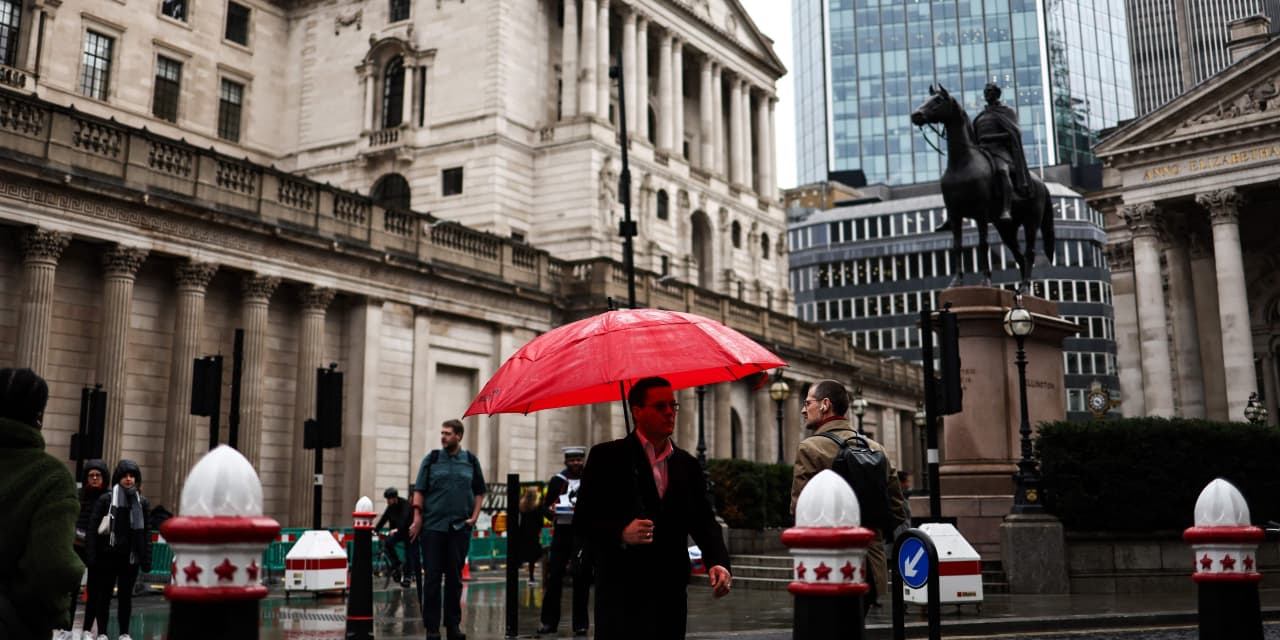The U.K. is set to start work on plans to create a digital version of Britain’s pound to ensure the country holds onto its “monetary sovereignty” in a world increasingly dominated by cryptocurrencies, the country’s treasury and central bank have said.
In a consultation paper, the Bank of England and the Treasury said they believe it is now likely the U.K. will need to launch its own digital currency at some point going forward to ensure the country keeps up with technology amid the rise of cryptocurrencies worldwide.
In making its case, the paper argues that increasing uptake of digital currencies could see the U.K.’s monetary system start to fragment in a shift that could undermine the stability of the British economy and limit the Bank of England’s ability to implement monetary policy.
The paper says shifts in global finance could also see the world’s major banks and financiers shift towards using digital currencies for high value payments, as it argues the launch of a digital currency could help Britain hold onto its leading position in the global financial sector.
The launch of a Bank of England backed digital currency – which has come to be known as ‘Britcoin’ – could also help boost competition in the digital payments sector which is currently at risk of being dominated by a few leading players including ‘big tech’ firms, the report says.
The paper warns developments in cryptocurrency technologies, including the potential for lower cost digital transactions than those currently offered by card companies, could lead to a sudden shift towards their widespread use.
This shift could undermine public trust in money while also compromising the Bank of England’s ability to properly regulate the financial system in a turnaround that could compromise the fundamental stability of the U.K.’s monetary system.
The launch of a digital pound would, meanwhile, help sterling retain its place as the U.K.’s currency, while also acting as a “bridging asset” between the British pound and rival non-sterling cryptocurrencies.
The value of any U.K. digital currency would be pegged to the value of British sterling with transactions made via a core ledger which would be controlled by the Bank of England itself, meaning £10 cash could be exchanged for £10 in Britcoin, the paper says.
The paper explains that transactions would be made via anonymized wallets, likely held on people’s smartphones, that would offer the same levels of privacy currently offered by cryptocurrencies to ensure public trust in the digital pound remains high.
The Bank of England’s report, however, says the central bank remains committed to keeping cash in the system, as it notes that a fifth of British people use cash as their preferred payment method including the 1.2 million U.K. adults who don’t have a bank account at all.
The Treasury and the Bank of England are now set to start making plans for what the U.K.’s digital pound would look like – even though there are no plans to actually start building it yet. The report notes that any digital pound could take several years to launch.
In the consultation leading up to the report, civil liberties campaigners previously spoke out against plans for a Bank of England backed digital currency, arguing the launch of Britcoin will inevitably lead to an erosion of U.K. citizen’s rights to privacy.
In a response letter, Big Brother Watch warned Britcoin could become an “instrument for state surveillance” that could be used to watch over the U.K. population, via use of Britain’s existing counter-terror and anti-money laundering laws.
In their report, the Bank of England and the Treasury concede that it would be impossible to create a truly anonymous digital currency, due to the fact all transactions are recorded on a central ledger, as it notes payments data would also be subject to anti-money laundering and counter terror laws.
The report also concedes that the companies that provide Britcoin wallets would be required to verify users’ identities as it suggests users could gain increasing levels of access depending on the extent to which they are willing to verify themselves.
In its response letter, Big Brother Watch warned the data created by Britcoin could be exploited by governments and hackers and it argued tiered access also risks excluding people from participating in the U.K.’s economy.
Wallet operators would also be allowed to collect users’ data, within the remit of the U.K.’s General Data Protection Regulation privacy rules, in what Big Brother Watch warned could lead to widespread exploitation of people’s data for targeted marketing purposes.
In a response letter, the U.K.’s Payments System Regulator (PSR) also warned the launch of a digital pound could open space for fraud if proper protections are not put in place.
Read the full article here




